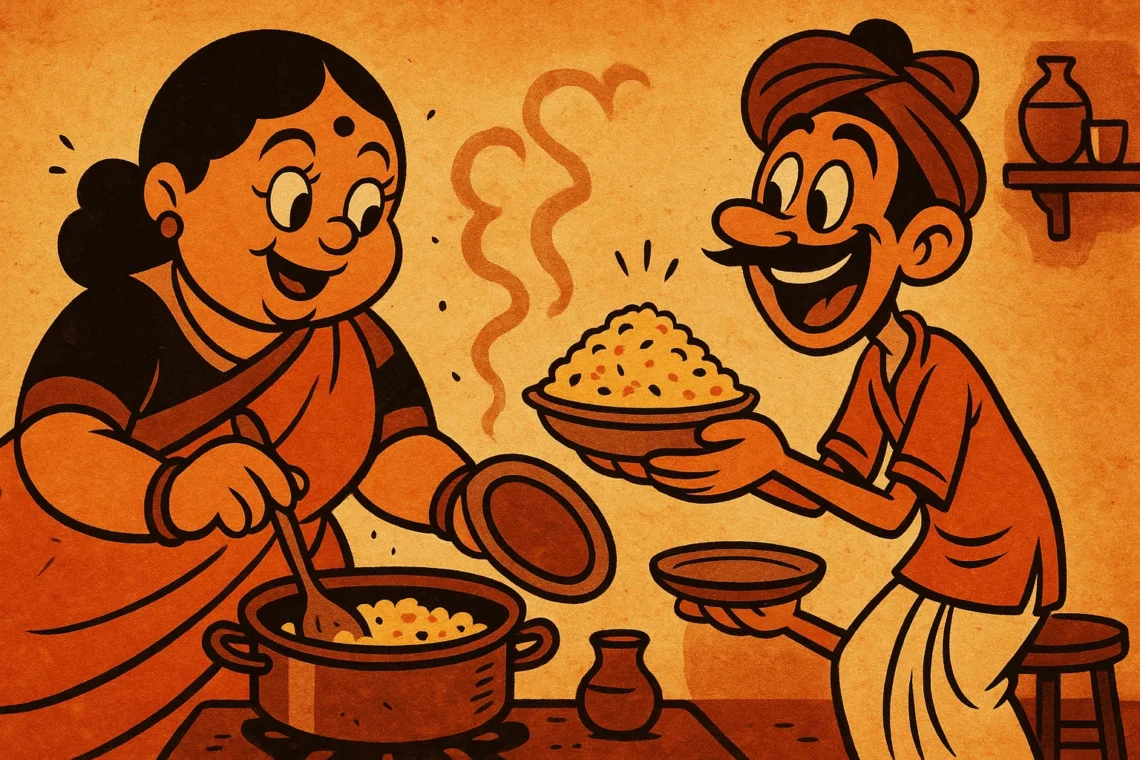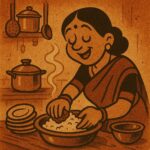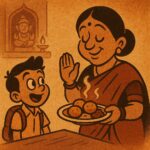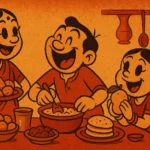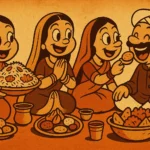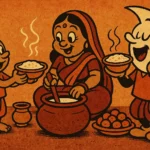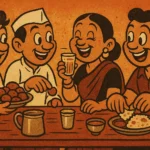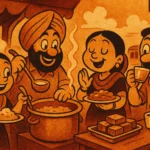There are foods you eat at the right time, and then there’s khichdi—the dish that couldn’t care less about the clock. It’s not bound by breakfast, lunch, or dinner. It’s immune to social expectations. And when it shows up at 2 a.m.—after a long day, a longer night, or a heartbreak you’re trying not to name—it doesn’t ask questions. It just shows up warm, forgiving, and absolutely perfect. No judgement. No garnish. Just khichdi. At 2 a.m. With no shame.
Everyone has their late-night ritual. Some reach for Maggi. Some demolish a packet of chips in the glow of the fridge light. But for those of us who’ve truly given up on pretense and leaned into comfort, khichdi is the answer. Because while the world sleeps and your stomach growls and your brain is buzzing with unresolved to-do lists or last week’s argument, khichdi offers one gentle response: bas, khila ke sulata hoon.
The Easiest Hard Work
Making khichdi at 2 a.m. feels rebellious and saintly at the same time. It’s cooking—but barely. You toss some moong dal and rice into a pot, add salt, turmeric, maybe a bay leaf if you’re fancy. Let it simmer. You don’t need perfect ratios. You don’t need a recipe. You just need to wait for the steam to carry that familiar smell—of childhood, of being taken care of, of meals made by someone who loved you enough to keep things simple.
Sometimes you add a spoon of ghee. Sometimes you fry some jeera in it, just to feel like a real adult. Other times, you just eat it straight from the pot, standing in the kitchen, in your loosest t-shirt and least dignified state. And still, the first bite tastes like dignity restored.
No Audience, No Performance
Khichdi at 2 a.m. isn’t plated. It isn’t shared on Instagram. You don’t “serve” it. You scoop it. You shovel it. You sigh between bites. You may even tear up, not because of the food, but because something in your body relaxes for the first time in days. It’s not about hunger—it’s about needing to feel okay. And somehow, khichdi makes you feel okay in a way no other food can.
There’s no shame in it. None. The day could have gone entirely wrong—deadlines missed, feelings hurt, calls ignored. But in that quiet corner of the night, when the city is finally still and you’re too tired to pretend, khichdi offers the softest kind of relief. It asks nothing. It gives everything.
Better Than Therapy, Cheaper Than Delivery
We don’t talk enough about khichdi’s superpower: emotional triage. It doesn’t fix anything, but it helps you remember that not everything needs fixing tonight. It’s the friend who doesn’t lecture, doesn’t analyze, just hands you a bowl and sits next to you in silence.
And let’s be real—ordering food at 2 a.m. is a gamble. What you’ll get is a limp sandwich or soggy fries. What you need is mushy rice and dal, hot and humble, with ghee melting into every grain like it knows you’ve been through it. Khichdi doesn’t disappoint. It shows up, always, with more warmth than you thought a bowl of yellow mush could hold.
Shameless, Comforting, Ours
We’ve all been there. On the floor with a bowl. On the couch in yesterday’s clothes. Stirring the pot with one hand while replaying mistakes with the other. And through it all, khichdi stays the same. Soft. Salted. Steady. It’s the food version of your grandmother’s lap. Of that one old song. Of sleep, when it finally comes.
So here’s to khichdi at 2 a.m.—the dish that doesn’t judge, doesn’t hurry, doesn’t need approval. Just you, your craving, and a bowl of something that says: it’s okay now. You’re home.
Born in Mumbai, now stir-frying feelings in Texas. Writes about food, memory, and the messy magic in between — mostly to stay hungry, sometimes just to stay sane.

